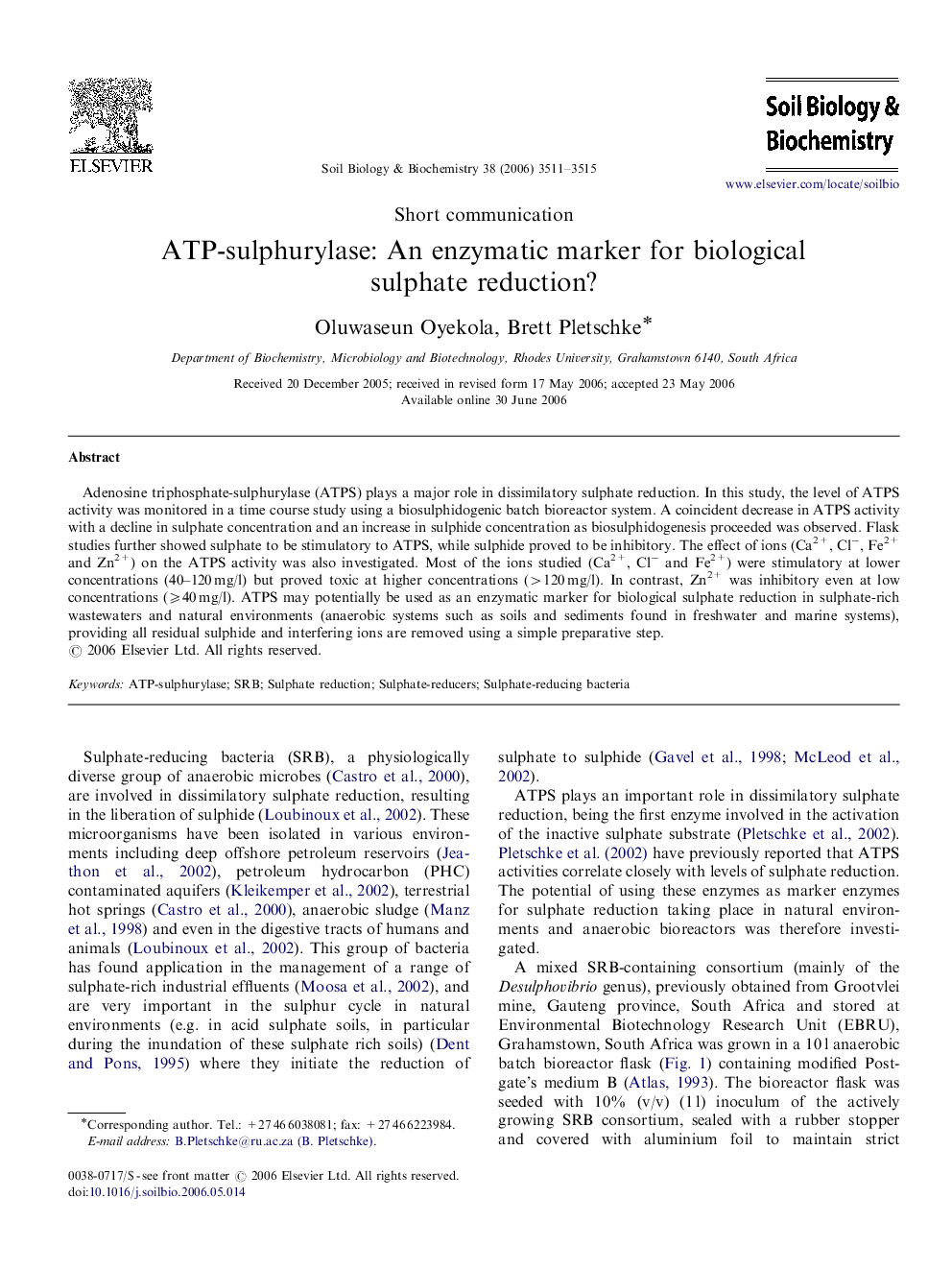| Article ID | Journal | Published Year | Pages | File Type |
|---|---|---|---|---|
| 2027095 | Soil Biology and Biochemistry | 2006 | 5 Pages |
Adenosine triphosphate-sulphurylase (ATPS) plays a major role in dissimilatory sulphate reduction. In this study, the level of ATPS activity was monitored in a time course study using a biosulphidogenic batch bioreactor system. A coincident decrease in ATPS activity with a decline in sulphate concentration and an increase in sulphide concentration as biosulphidogenesis proceeded was observed. Flask studies further showed sulphate to be stimulatory to ATPS, while sulphide proved to be inhibitory. The effect of ions (Ca2+, Cl−, Fe2+ and Zn2+) on the ATPS activity was also investigated. Most of the ions studied (Ca2+, Cl− and Fe2+) were stimulatory at lower concentrations (40–120 mg/l) but proved toxic at higher concentrations (>120 mg/l). In contrast, Zn2+ was inhibitory even at low concentrations (⩾40 mg/l). ATPS may potentially be used as an enzymatic marker for biological sulphate reduction in sulphate-rich wastewaters and natural environments (anaerobic systems such as soils and sediments found in freshwater and marine systems), providing all residual sulphide and interfering ions are removed using a simple preparative step.
